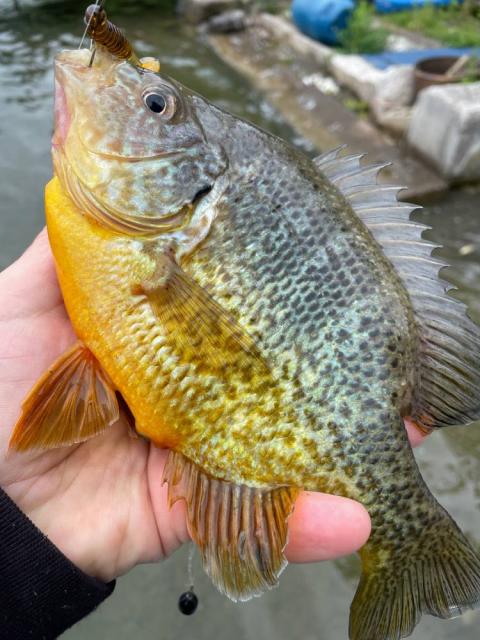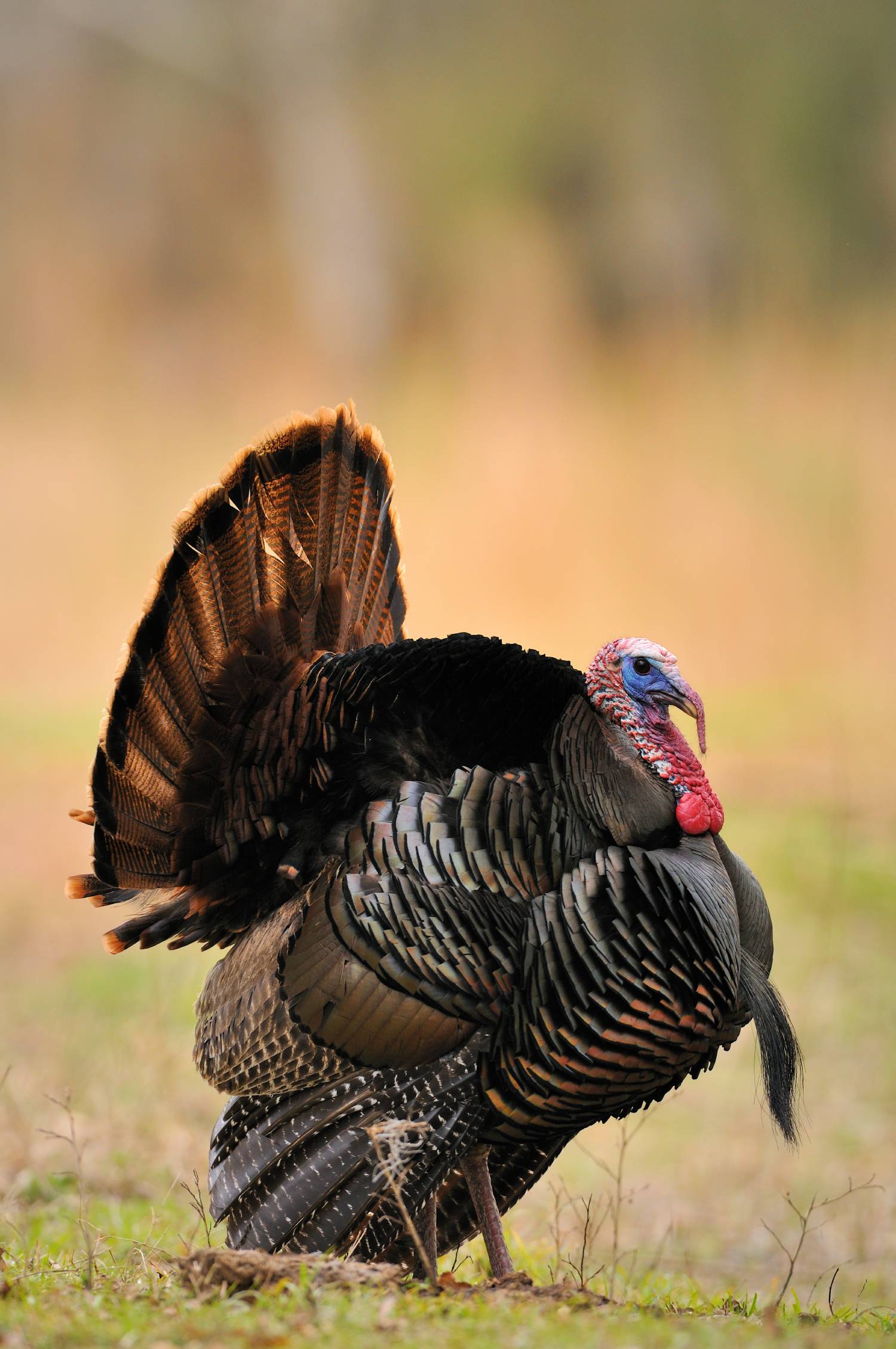Written by Jessi Cole
According to Pennsylvania wild turkey biologist Mary Jo Casalena, if wild turkeys survive their first year, their total lifetime will range from an additional 1-3 years—making any turkey living past four years old an exceptionally old bird.
However, there will always be an extreme outlier in any rule, as was the case when the PA Game Commission discovered a healthy turkey hen, who against all odds, was determined to be at least 12.5 years old.
The hen had been first trapped for a study back in 2012 in which the PA Game Commission was taking a look at the effects of fall season length on hen harvest rates.
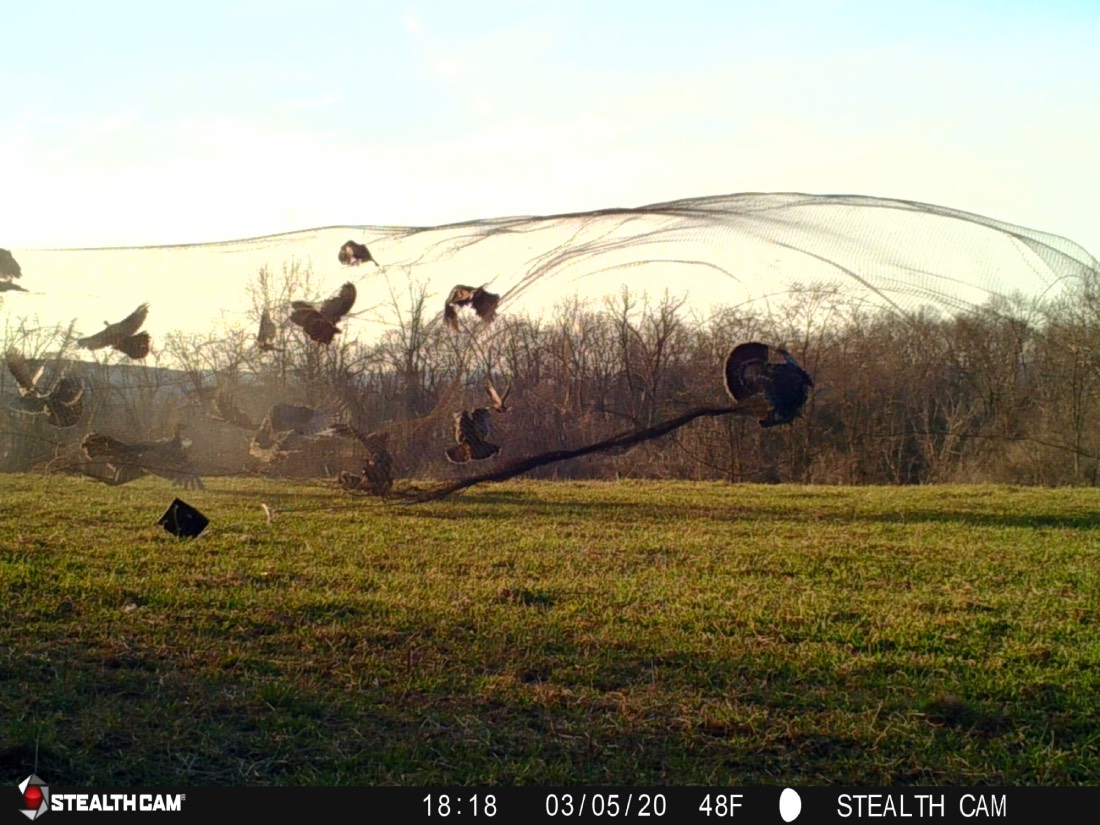
Pictured: An example of the capture tactics employed by the researchers for the PA Game Commission.
Then Wildlife Conservation Officer Chris Ivicic remembers the day this hen was first trapped as a day like any other. According to his files, it was a cold, dreary day. 7 birds were present; 5 hens were trapped. They had two transmitters, technology that allows biologists to track movement habits, survival and assess nesting status, to assign to hens that day, and because all 5 of the hens were determined to be healthy, they simply fashioned the transmitters to the first two hens caught. Our bird of notable age, whom Mary Jo has nicknamed "Grandma," was the third bird down the line and was only banded along with the fourth and fifth hens.
All of the hens captured that day were determined to be at least 1.5 years of age; all were adult hens.
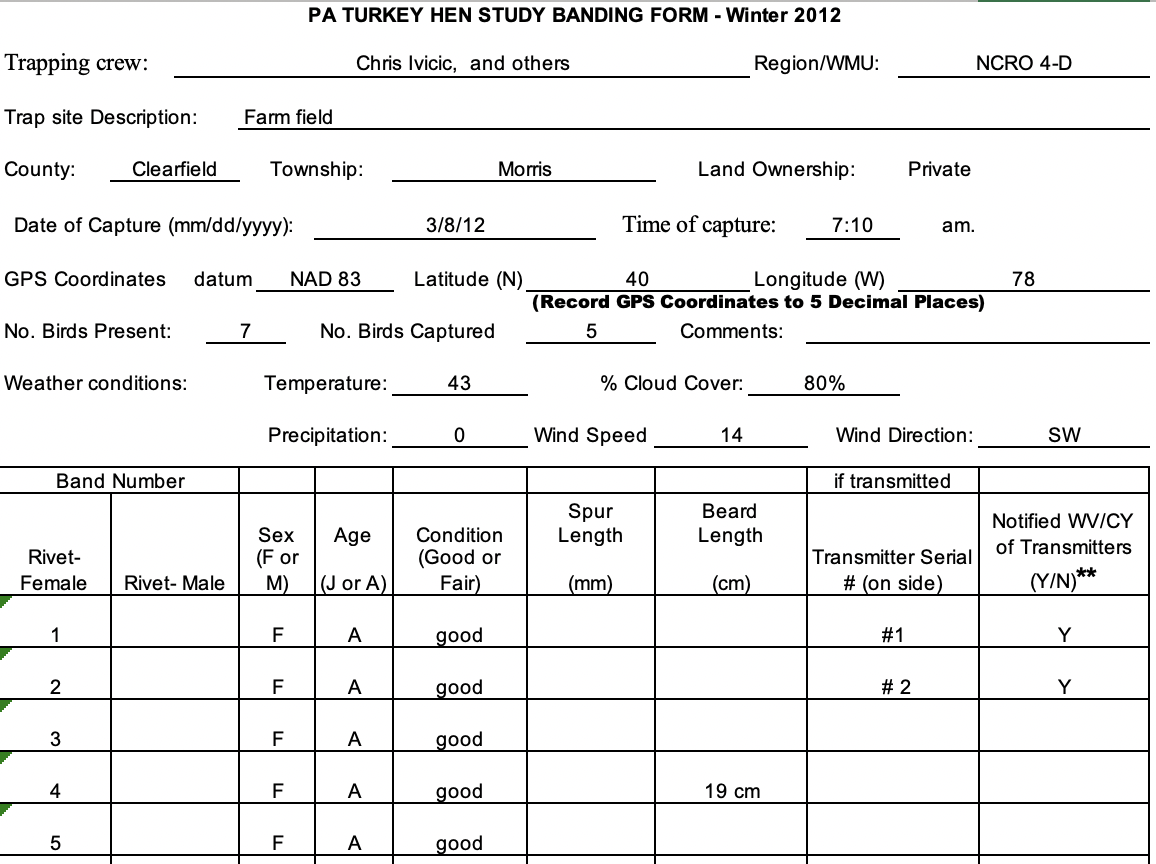
Reportings from the hen's first capture in 2012; she was bird #3.
Fast forward to 2022, Mary Jo is leading a research project on hen population dynamics: nest success, nesting rates, predation rates on nests, and poult survival, to name a few objectives. When the now Game Warden Chris Ivicic, and turkey trapping crew captured the hen yet again in February, Chris, of course, didn’t recognize the hen. He reported that she had a band on her leg and that she was in great shape. In fact, wild turkey technician, Tony Musselman, hired for this 4-year hen study, thought she looked so good that the team put a transmitter on her—transmitters only allotted for healthy hens.
When the team noticed the band on her leg, they still didn’t make the connection quite yet. Tony texted in the band number to Mary Jo, who looked up her number and discovered that the hen had to be at least 12.5 years old, according to the original banding information in 2012.
After learning about the hen's age and that Chris himself had trapped her a decade ago, Chris felt that he had, “reunited with a long-lost love from ten years prior.”
Tony Musselman said, “It was pure luck that we caught this bird. It was just an ordinary trapping. I noticed that she already had a leg band on her and it was pretty worn. I would have told you she was a 3 or 4-year-old hen. She looked healthy, she looked great.”
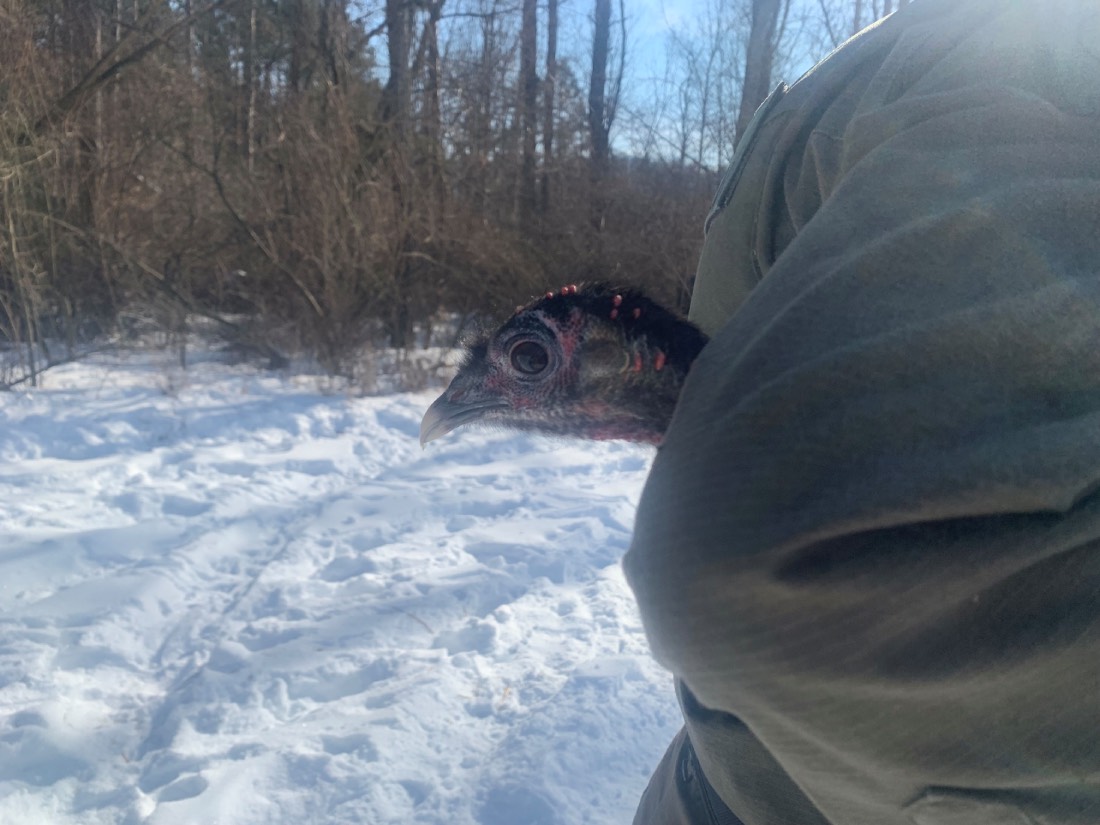
Pictured: Our bird of note on her 2022 capture.
In fact, she had only traveled about a mile from where they had first captured her in 2012.
Mary Jo says, “We do spread out our trappings but you are eventually going to run into the same turkeys again.”
But to say this hen was an anomaly is a huge understatement.
Mary Jo goes on to say, “To tell you the truth, this hen should not be alive. She’s defying all of our longevity records that we’ve ever had in Pennsylvania.”
The current longevity record for the wild turkey is held by a 15-year-old eastern gobbler in Massachusetts. In 1992, a fisherman discovered the relatively new carcass of its body and reported the find by calling the number found on the band around its leg. The male turkey had been banded 13 years prior by James Cardoza on March 15, 1979—making it the oldest wild turkey known to research.
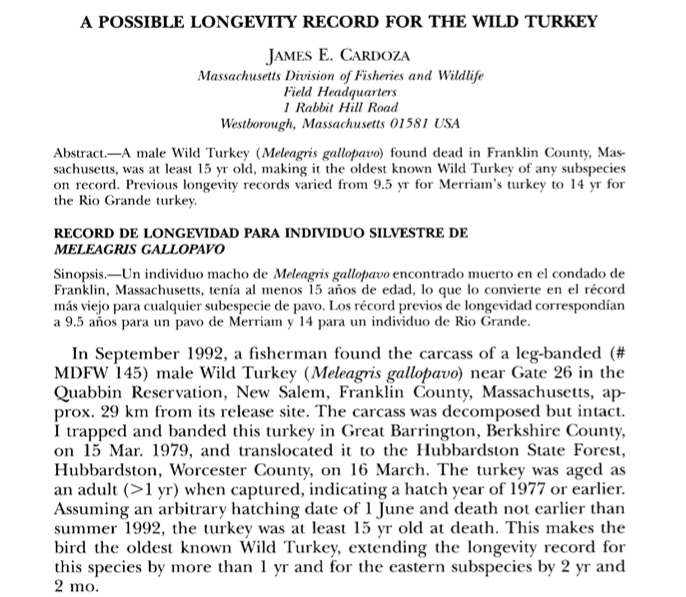
Information reported on the oldest wild turkey by James Cardoza.
Additionally, a 13-year-old hen was discovered in New Jersey by biologist Bob Eriksen, also in 1992.
Since our (at least) 12.5-year-old hen now has a transmitter, Tony and then field crew can track her movements and see if she somehow produces a clutch this spring. As to reproduction, Mary Jo thinks that the possibility is highly unlikely, saying “I cannot imagine that a 12.5-year-old hen could still be reproductively active. I don’t think she can physically produce an egg anymore. Maybe one, but not a whole clutch. If she can pull off a clutch, it would be considered a biblical exception.”
Tony says, “We’ve had a transmitter on her since early February. We’ve been tracking her every week. She’s still with her flock right now and she’s doing great. It’s neat where she’s living.”
As the team continues to monitor the hen, they are focusing on the same questions everyone else has: How much longer can she survive and can she pull off a clutch at her age?
We’ll see this spring whether our old bird can still reproduce. Good luck, "Grandma" !
The Pennsylvania Game Commission manages and protects wildlife and their habitats, while promoting hunting and trapping, for current and future generations. The state’s wildlife agency strives to be recognized as a leader in innovative and proactive stewardship of wildlife and their habitats.
























